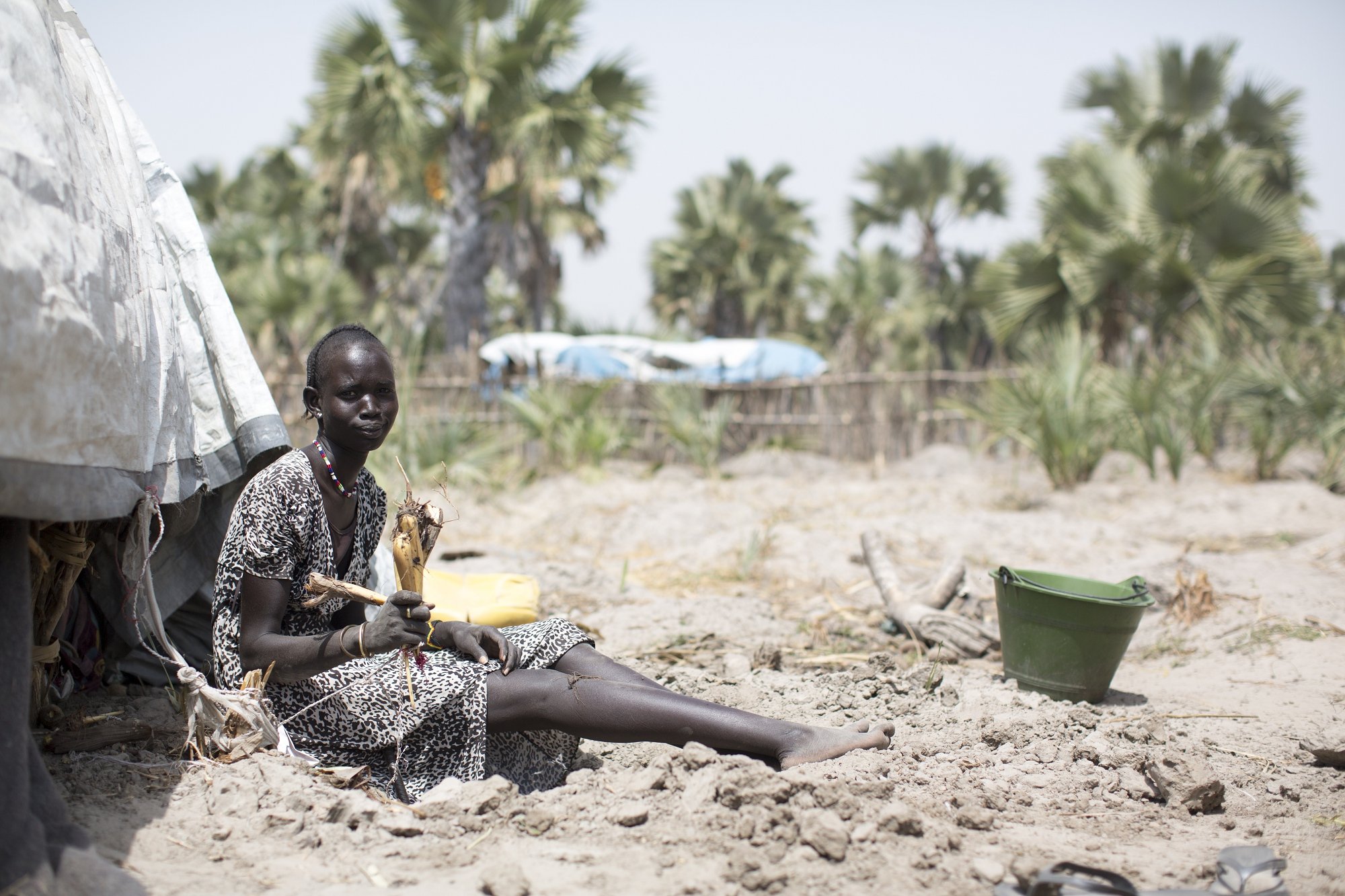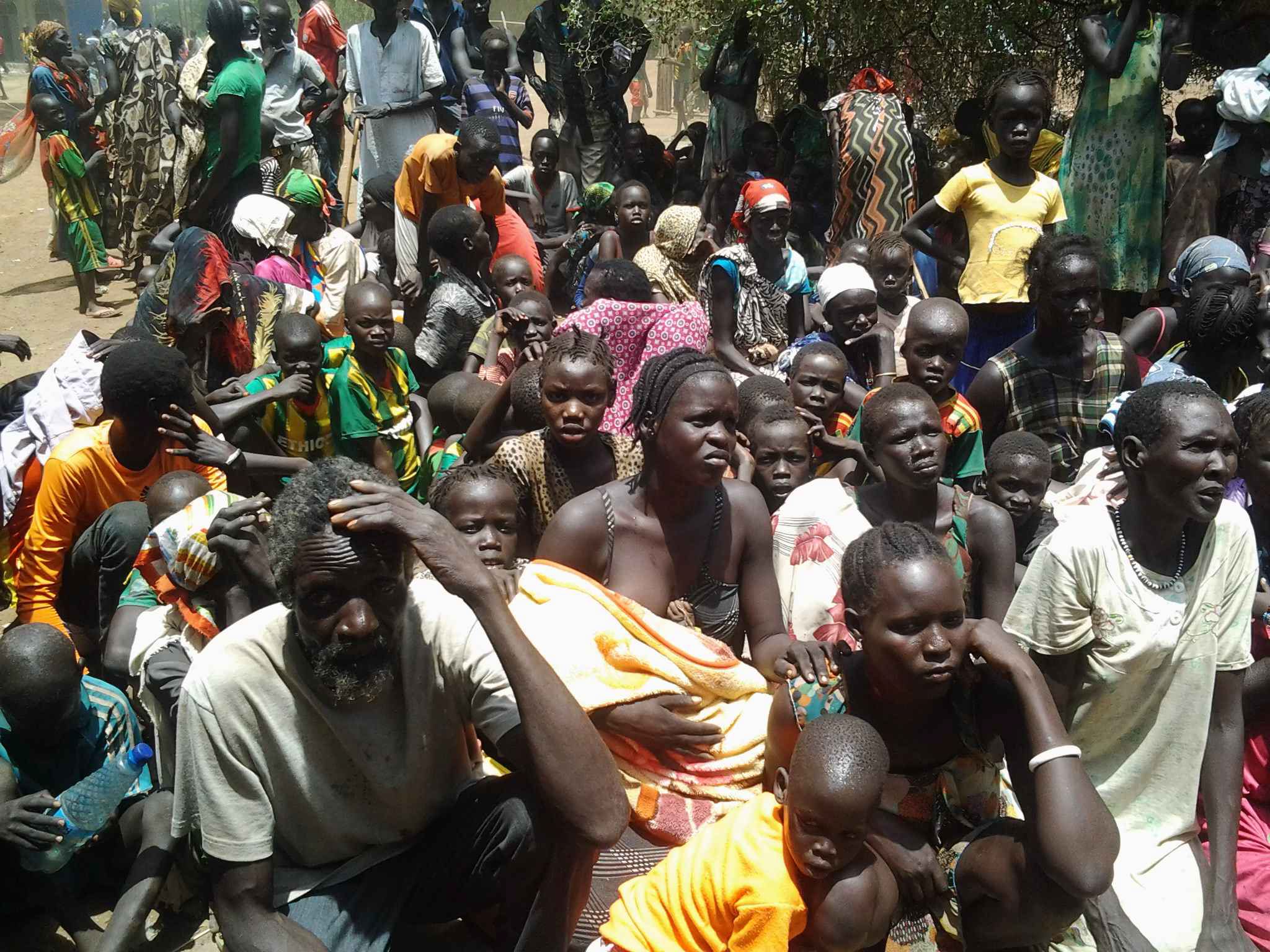From oil to toil, Thai worker leaves Ethiopia camp with UNHCR help
From oil to toil, Thai worker leaves Ethiopia camp with UNHCR help

ASSOSA, Ethiopia, December 12 (UNHCR) - In a remote corner of Ethiopia, home to more than 9,000 refugees from Sudan's Blue Nile state, one man stuck out like a sore thumb. For weeks, 65-year-old Buntha Mkewyu ate, slept and lived alongside his Sudanese friends in Tongo refugee camp, but it was clear he didn't quite belong.
Originally from Thailand, Mkewyu did not expect to end up in a refugee camp when he went to work for an oil company in Blue Nile's Maganza town in 2007. But in October this year, he was forced to flee when fighting escalated between the Sudanese Armed Forces (SAF) and the Sudan People's Liberation Army-North (SPLA-N).
In the chaos, he was picked up by a group of SPLA-N soldiers who drove him 40 kilometres to Dinduro - still inside Blue Nile - where one of the soldiers knew of another foreign-owned company. They asked the manager to take care of Mkewyu, saying that their quarrel was not with foreign nationals.
There he met John Borl Akol, a 24-year-old Sudanese who soon became his friend and translator. Mkewyu does not speak English, so the two conversed through gestures and a smattering of the local language he picked up in Sudan. Together with a group of Indian workers in Dinduro, they proceeded to Kurmuk to get as far away as possible from the conflict. But it soon caught up with them when aerial bombings hit a nearby town.
This time, Mkewyu and his companions fled into neighbouring Ethiopia. While his Indian friends approached their embassy for help, he had nowhere to turn as Thailand has no official representation in Ethiopia. He joined Akol and the rest of his Sudanese colleagues in turning to ARRA (the Ethiopian government's Administration for Refugee and Returnee Affairs) and UNHCR for protection and assistance.
"As a third-country national, Mkewyu is not an asylum-seeker, refugee or stateless person. Nor is he internally displaced," said UNHCR Protection Officer Nigora Kadirhodjaeva. "However on humanitarian grounds UNHCR sometimes assists people who do not ordinarily fall within its mandate. We had him registered in Tongo refugee camp so that he could benefit from the services that are on offer to refugees."
Mkewyu shared a UNHCR tent with Akol, who noted, "He wanted for nothing. Our neighbours invited us to share their meals and really went out of their way to make sure that he was well looked after. He was very dignified despite his frustration and kept up his side of the cooking and laundry."
Then began the numerous telephone calls and e-mails between UNHCR, ARRA, the International Organization for Migration, Mkewyu's employer in Khartoum, and the Thai authorities in Sudan and Thailand to ensure that he was assisted in Ethiopia and to make arrangements for his evacuation from Tongo.
UNHCR's Kadirhodjaeva travelled many times to Tongo camp, about 120 kms from the agency's field office in Assosa, to follow up on the paperwork needed to facilitate his exit from Tongo and Ethiopia, but also to ensure that he was okay.
"We didn't have to worry at all," she said with a smile. "Everyone, including his refugee neighbours, was pleading with UNHCR to help Mkewyu return home, not aware that we were working hard behind the scenes doing just that."
On November 24, UNHCR received the news everyone had been waiting for. The ARRA office in Addis Ababa had authorized his camp pass permit and Mkewyu's evacuation to the capital. Khadirhodjaeva chose to deliver the good news in person. "The drive seemed endless," she recalled. "I couldn't wait to tell him and see his reaction!"
When he heard the news, Mkewyu maintained a straight face. But his relief and happiness showed in the way he bowed his head and clasped his hands in front of his face. When Akol and their neighbour congratulated him, he broke into a smile as he hugged his friend, mindful that they would be spending their last few hours together.
Translating one last message from Mkewyu, Akol said, "He would like to thank everyone, from the people who helped him to safety, to the Ethiopian government, refugees in Tongo and all the organizations that worked together to make this happen."
Despite his sadness to see his friend go, Akol added, "I am happy for him. Sudan's conflict had nothing to do with him. He just happened to be in the wrong place at the wrong time. I will miss him but I'll be happy to wave him off on the first leg of his journey back to Thailand."
By Pumla Rulashe in Assosa, Ethiopia








